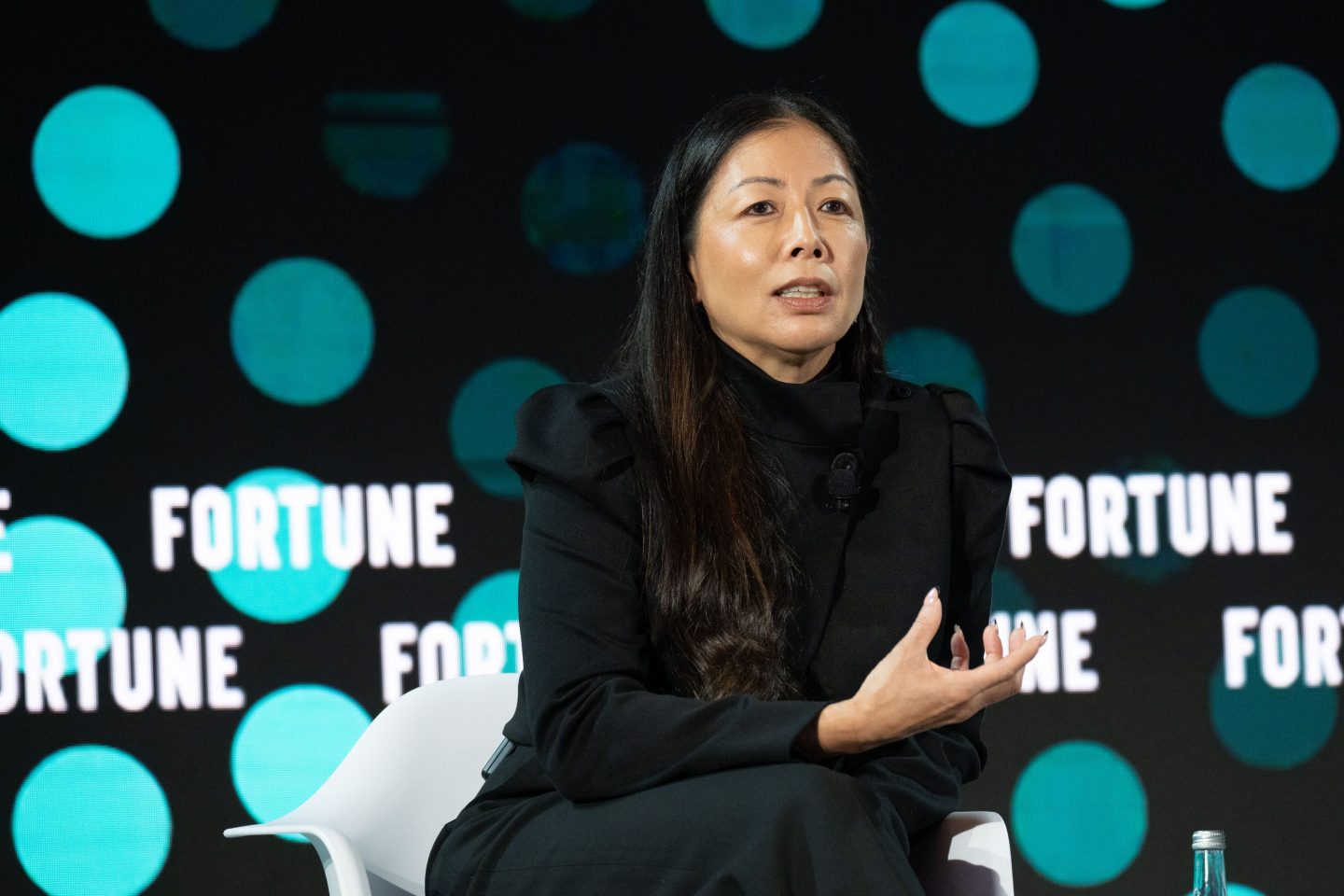Foxconn, the Taiwan-based manufacturing partner of companies like Apple and Nvidia, and Intrinsic, an AI and robotics company under the Alphabet umbrella, are investing in a joint venture that will deploy robots in Foxconn’s U.S. factories, according to a statement from Intrinsic released Thursday evening.
“Foxconn just has huge manufacturing expertise,” Wendy Tan White, CEO of Intrinsic, said to Fortune in an interview. She added that Foxconn, perhaps best known for its work assembling Apple’s iPhones, will know which parts of the manufacturing process can be best improved through AI.
Intrinsic is a graduate of Alphabet’s moonshot program, focused on developing breakthrough new technologies. Developers worked on ways to make industrial robots easier and cheaper to use; Alphabet debuted the firm as a separate company in 2021.
In particular, Intrinsic focuses on flexible manufacturing, or developing automated systems that can respond to new data, self-optimize, and adapt how they work. Currently, industrial robots are best applied to predetermined tasks, and it is difficult—and expensive—to change how they work. That’s why human labor, in many situations, is still a better option for manufacturers that need flexibility.
White says that Intrinsic and Foxconn had been in conversations for “maybe a year or two now,” and that it was “inevitable” that the electronics manufacturing giant would want to cooperate with Intrinsic on software and AI development.
“In working with Intrinsic, we are able to tap their deep expertise in AI-driven robotics,” Foxconn chair Young Liu said in a statement. “This synergy complements our global manufacturing leadership, enabling us to collaboratively unlock the factory of the future.”
In late October, Foxconn, whose official name is Hon Hai Technology Group, announced that it would deploy robots at its new Houston plant producing Nvidia server racks. Foxconn is also working with Nvidia to create medical robots for Taiwan’s hospitals.
The Taiwanese company is also cooperating with robotics firms from mainland China. In January, a Foxconn executive announced that the company would deploy robots from Shenzhen-based UBTech in its factories in mainland China.
White declined to share how much money Intrinsic or Foxconn was contributing to the joint venture, but did share that the initiative was “not a pilot.”
Asian robots
Initiatives like Intrinsic’s new joint venture are part of a growing shift in attention to “physical AI,” or AI models applied in the real world as opposed to the purely digital world of software.
White suggested that some of the interest in robotics is the result of COVID-era supply shocks, and companies’ recognition that they needed to onshore more manufacturing. Yet the loss of manufacturing expertise in advanced economies has meant that factories can’t easily scale up production.
Robotics could help solve the problem of a shrinking manufacturing workforce–in more ways than one. “What’s interesting and heartening is that suppliers within manufacturing supply chains, like machine shops, are finding that bringing AI and robotics back into the conversation is bringing the young back into those industries, too,” White suggested.
Asia, owing to its combination of technical expertise and manufacturing footprint, is taking the lead in industrial robotics. Other companies are paying attention to this region; Nvidia CEO Jensen Huang has touted South Korea as a future hub for this new technology.
“Korea can create the robots, which then work in factories to create more robots, which work in more factories,” Huang told reporters in late October, right after the U.S. chipmaker announced that it would ship tens of thousands of GPUs to Korean companies like Hyundai and Samsung.
Yet the biggest player in this space is China, which makes more than half of the world’s industrial robots. Firms like Hangzhou-based Unitree are now rapidly developing new humanoid robots.
“They’ve got the skills and expertise, because they’ve been producing for so long,” White said. “I wouldn’t ignore it.”













